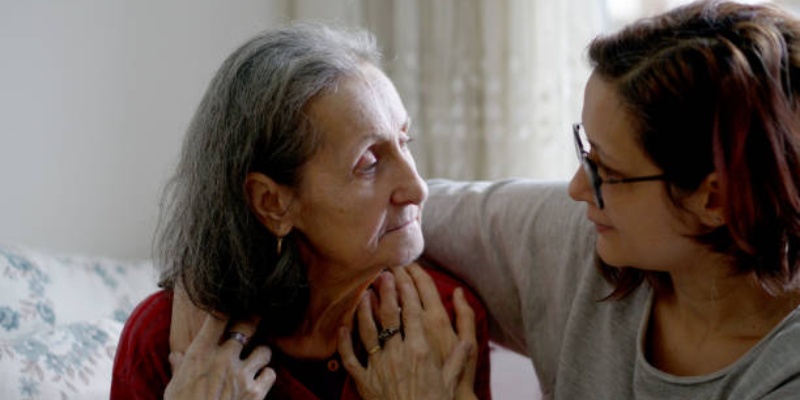I've spent years caring for family members and friends, and one thing I've learned is that Alzheimer's doesn't always announce itself with loud, apparent symptoms. Sometimes, it creeps in quietly, like a shadow you barely notice until it's too late. Recognizing the early signs of Alzheimer's in someone you love isn't just about memory lapses—it's about noticing shifts in behaviour, mood, and daily habits that feel "off." If you've ever wondered, "Is this normal ageing or something more?" you’re not alone. Let’s walk through the subtle clues that might mean it’s time to seek help.
I've spent years caring for family members and friends, and one thing I've learned is that Alzheimer's doesn't always announce itself with loud, apparent symptoms. Sometimes, it creeps in quietly, like a shadow you barely notice until it's too late. Recognizing the early signs of Alzheimer's in someone you love isn't just about memory lapses—it's about noticing shifts in behaviour, mood, and daily habits that feel "off." If you've ever wondered, "Is this normal ageing or something more?" you’re not alone. Let’s walk through the subtle clues that might mean it’s time to seek help.
1. They Forget Recent Conversations Or Events
Memory slips happen to everyone, but Alzheimer '''s-related forgetfulness is different. Your mom might ask the same question three times in an hour or forget a birthday celebration you had last week. It's not just misplacing keys—forgetting they had keys in the first place. I noticed this with my aunt, who'd ask me repeatedly about a family trip we'd just taken as if it never happened. She wasn't being forgetful; her brain was struggling to store new memories.

2. Simple Tasks Feel Overwhelming
Cooking a familiar recipe, balancing a chequebook, or even following a TV show's plot can become surprisingly difficult. My neighbour, a retired teacher, once prided herself on her budgeting skills. Suddenly, she started mixing up numbers or leaving bills unpaid. Tasks she'd done for decades felt like puzzles she couldn't solve. This isn't about ageing—it's about the brain's ability to process information starting to fray.
3. Time And Place Get Confusing
Alzheimer's often scrambles a person's sense of time and space. Your dad might think it's morning when it's dusk or get lost driving to a store he's visited hundreds of times. I've seen loved ones panic because they couldn't figure out how they got somewhere or what day it was. It's not stubbornness—disorientation can leave them feeling scared and defensive.
4. Mood Swings Seem Out Of Character
One day, your cheerful sister is snapping at everyone over small things. The next, she’s withdrawn and tearful. Alzheimer’s can warp emotions, causing sudden anger, anxiety, or depression. These changes might look like personality shifts, but they’re often the brain’s way of reacting to confusion. My uncle went from being a jokester to someone who’d cry during commercials—he didn’t know why he felt that way, either.
5. Words Escape Them Mid-Sentence
Struggling to find the right word is common as we age, but Alzheimer’s makes it worse. Your loved one might call a “refrigerator” a “cold box” or trail off mid-story because they can’t recall what they meant to say. I’ve watched friends pause for minutes, trying to name everyday objects. It’s frustrating for them—and heartbreaking for you to witness.
6. Poor Judgment Starts Small
Alzheimer’s can cloud decision-making in ways that seem harmless at first. Your thrifty mom might splurge on things she doesn’t need. Your meticulous dad could wear mismatched clothes or skip bathing. These aren’t just quirks—they’re signs that the brain’s “filter” isn’t working as it should.

7. Social Withdrawal And Apathy
When someone starts avoiding gatherings they once loved, it's easy to think they're tired or busy. But Alzheimer's often makes socializing feel exhausting. Your extroverted friend might decline invitations, not because they don't care, but because keeping up with conversations feels overwhelming.
8. Repeating Stories Or Questions
Asking, “Did you eat lunch?” five times an hour isn't just annoying—it's a red flag. Alzheimer's disrupts short-term memory, so your loved one might not realize they're repeating themselves. My grandmother once told me the same childhood story three times in one afternoon. She wasn't being forgetful on purpose; her brain couldn't hold onto new information.
9. Trouble Following Plans
Planning a meal, organizing a calendar, or even playing a favourite game can become daunting. Alzheimer's affects problem-solving skills, turning straightforward tasks into obstacles. A friend who loved gardening once planted seeds in the same spot repeatedly, not understanding why nothing grew. It wasn't laziness—it was confusion.
10. Losing Track Of Belongings
Misplacing items is standard, but putting them in bizarre places isn't. Your dad might leave his wallet in the freezer or glasses in the pantry. Alzheimer's scrambles logic, making it hard to retrace steps. I've found car keys in the trash and phones in the fridge—it's not carelessness but a brain struggling to make sense of routine actions.
When To Seek Help (And How To Start)
If you notice these signs, don’t panic—but don’t ignore them, either. Start by having an open conversation. Use “I” statements: “I’ve noticed you’ve been forgetting appointments lately. Can we talk about this?” Offer to go with them to a doctor’s appointment. Early diagnosis can help manage symptoms and plan for the future.

How To Support Them (And Yourself)
Alzheimer's affects everyone in the family. Educate yourself about the disease, join a support group, and prioritize self-care. Small changes, like labelling cabinets or setting reminders on their phone, can help your loved one feel more independent. Most importantly, be patient. Their frustration is real, and kindness goes further than correction.
Looking Ahead With Hope
Alzheimer’s is a journey no one wants to take, but catching it early can make all the difference. Research shows that lifestyle changes—like diet, exercise, and mental stimulation—might slow progression. Advances in treatment are happening every day. By staying vigilant and compassionate, you’re giving your loved one the best chance to navigate this chapter with dignity.
Next Steps For Caregivers
If you're worried about someone you love, act now. Schedule a doctor's visit, research local resources, and lean on your community. Alzheimer's is challenging, but you're tougher. Together, you can face whatever comes next—one small step at a time.
- Share this article:
-
![Switzerland: A Traveler's Dream Destination]() Travel
Travel - Switzerland: A Traveler's Dream DestinationHave you ever dreamed of standing on top of a snowy mountain? Or you can imagine being in charming villages with fantastic views. If yes, your dreamy destination is Switzerland, which offers impressive natural scenery, exciting activities, and cultural treasures.
-
![Breakthroughs In Alzheimer’s Treatment: 2025 Updates]() Health & Medical Treatment
Health & Medical Treatment - Breakthroughs In Alzheimer’s Treatment: 2025 UpdatesI've been diving into the latest research on Alzheimer's disease, and let me tell you—2025 is shaping up to be a game-changer. For years, Alzheimer's has felt like a puzzle with missing pieces. But this year, scientists are finally fitting those pieces together. From high-tech tools to groundbreaking drugs, the progress is thrilling and hopeful. Let me break it down for you.








